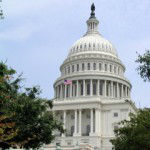Supreme Court to Consider Treaty Power in Bond v. United States

The U.S. Supreme Court recently agreed to hear a case involving a jilted wife who attempted to poison her husband’s lover. While the facts of Bond v. United States sound like they come straight from a soap opera, the justices will likely tackle some difficult Constitutional issues regarding the federal government’s treaty power, which have not been squarely addressed since 1920.
The Facts of the Case
Carol Anne Bond was arrested after she was caught spreading chemicals around her former best friend’s home, mailbox, and car door. The woman was pregnant after engaging in an affair with Bond’s husband. The poisoning case is before the Supreme Court because Bond was charged under a federal law implementing the United State’s treaty obligations under the 1993 Chemical Weapons Convention.
The Supreme Court’s Prior Ruling
Bond has already succeeded once before the Supreme Court. In 2011, the Court ruled that Bond had standing to challenge the constitutionality of the statute under the 10th Amendment. However, the argument ultimately failed before the Third Circuit Court of Appeals. It held that it was bound by the Supreme Court’s decision in Missouri v. Holland. The case, decided in 1920, has long stood for the proposition that laws passed pursuant to treaties are not subject to 10th Amendment scrutiny.
The New Issues Before the Court
Bond raises two new questions in her current appeal before the Supreme Court. The first is whether the Constitution’s structural limits on federal authority impose any constraints on the scope of Congress’ authority to enact legislation to implement a valid treaty, particularly in circumstances where the federal statute, as applied, goes far beyond the scope of the treaty. The second is whether the provisions of the Chemical Weapons Convention Implementation Act can be interpreted to reach ordinary poisoning cases, which have been traditionally handled by state and local authorities.
To answer these questions, the Court may have to tackle difficult constitutional questions involving the scope of and continuing vitality of this Court’s decision in Missouri v. Holland. In her petition for certiorari, Bond specifically questions whether the Third Circuit correctly applied the long-standing precedent. “Whether or not that is the best reading of Holland or whether Holland needs to be reconsidered,” the petition states, “it is clear that only this court can correct this injustice and clarify that statutes enacted to implement valid treaties, like all other laws, must comply with the Constitution’s bedrock structural limits on our system of limited but enumerated federal powers.”
This case is one certainly one to watch as the Supreme Court enters the second half of the term. As Reuters accurately states, the case “presents an unusual clash between the desire to enforce international treaty norms, including provisions designed to thwart terrorism, and the 10th Amendment to the U.S. Constitution, which limits federal power.”
Previous Articles
SCOTUS Decision in Bowe v. United States Is First of the 2026 Term
by DONALD SCARINCI on February 5, 2026
In Bowe v. United States, 607 U.S. ___ (2026), the U.S. Supreme Court held that Title 28 U.S.C. § ...
SCOTUS Rules State Can’t Immunize Parties from Federal Civil Liability
by DONALD SCARINCI on January 29, 2026
In John Doe v. Dynamic Physical Therapy, LLC, 607 U.S. ____ (2025) the U.S. Supreme Court held that...
Supreme Court to Address Racial Discrimination in Jury Selection
by DONALD SCARINCI onWhile the U.S. Supreme Court has concluded oral arguments for the year, it continues to add cases t...
The Amendments
-
Amendment1
- Establishment ClauseFree Exercise Clause
- Freedom of Speech
- Freedoms of Press
- Freedom of Assembly, and Petitition
-
Amendment2
- The Right to Bear Arms
-
Amendment4
- Unreasonable Searches and Seizures
-
Amendment5
- Due Process
- Eminent Domain
- Rights of Criminal Defendants
Preamble to the Bill of Rights
Congress of the United States begun and held at the City of New-York, on Wednesday the fourth of March, one thousand seven hundred and eighty nine.
THE Conventions of a number of the States, having at the time of their adopting the Constitution, expressed a desire, in order to prevent misconstruction or abuse of its powers, that further declaratory and restrictive clauses should be added: And as extending the ground of public confidence in the Government, will best ensure the beneficent ends of its institution.





